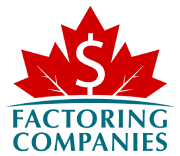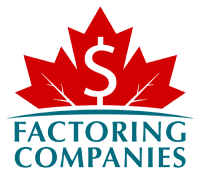
Seven percent of B2B invoices are written off as bad debt in Canada, per Atradius. This marks a two-percent hike in just one year and is no doubt putting a serious dent in profit for small businesses across the country. As you explore your invoice factoring options, you’ll decide whether your business wants to continue accepting this risk and choose recourse factoring or if you’d like to transfer the risk to your factoring company via non-recourse factoring.
While it may seem like a simple decision, recourse factoring is by far the most popular choice for businesses. We’ll explore why this is and cover the benefits and drawbacks of recourse and non-recourse factoring below.
How Invoice Factoring Works
Invoice factoring involves selling your unpaid B2B invoice to a third party, known as a factor or factoring company. The factor gives you most of an invoice’s value right away. When your client pays, you receive the remaining sum from your factor minus a small factoring fee.
Benefits of Recourse Factoring and Non-Recourse Factoring
Recourse and non-recourse factoring share many of the same benefits, such as:
- Immediate payment for your B2B invoices.
- Cash in hand in as little as a day or two.
- A fast and easy approval process that isn’t contingent on your credit score.
- Flexible funding that can be leveraged as needed and scales with your business automatically.
Recourse vs. Non-Recourse Factoring

Your factoring company is responsible for collecting invoice balances and addresses it similarly to the way an outsourced billing company would as opposed to a collection company. Clients are treated with respect. This is not only a matter of ethics but also because the factor’s success is wholly dependent on your success. Maintaining positive relationships that facilitate long-term business agreements is in everyone’s best interests.
Because of this, factors usually offer your clients digital payment methods to simplify the payment process, and reminders are given to ensure payments are made promptly.
However, there’s always some risk that your client won’t pay an invoice. The key difference between recourse and non-recourse factoring is who accepts bad debt risks.
What is Recourse Factoring?
Recourse factoring is the more common arrangement, sometimes called “traditional factoring.”
Recourse factoring meaning: Your business accepts the risk of non-payment. If one of your clients doesn’t pay a factored invoice, you’re responsible for ensuring the factoring company receives payment. This typically means you’ll submit an invoice of equal value in its place, though your recourse factoring agreement may give alternate options.
What is Non-Recourse Factoring?
While recourse factoring is the more common method of invoice factoring, some factors also offer non-recourse factoring as an option.
Non-recourse factoring meaning: The factoring company accepts the risk of non-payment. If one of your clients doesn’t pay a factored invoice, the factoring company absorbs the loss.
Why Businesses Choose Recourse Factoring
Recourse factoring risks shouldn’t be overlooked. However, most businesses prefer this method because the benefits outlined below typically outweigh them.
Bad Debt Risk is Minimized Through Credit Checks
Before accepting invoices for factoring, your factor will run credit checks on your clients. You’ll receive guidance on how much trade credit you can extend without exposing your business to unnecessary bad debt risk. That means regardless of your chosen method, your bad debt risk is reduced simply by following best practices when extending trade credit. This often gives businesses enough assurance to feel confident when choosing recourse factoring.
Advances Are Usually Higher with Recourse Factoring
Your payment is split in two when you factor an invoice. The first payment, known as the advance, is made immediately when you submit an invoice to the factor. The second payment is made to you when your client pays the invoice. Advance rates vary, though they are usually between 60 and 95 percent of an invoice’s value. Businesses typically qualify for higher advance rates with recourse factoring because there’s less risk for the factor.
Recourse Factoring Costs Less

Factoring fees aren’t paid directly by you. Instead, the factor keeps a percentage of an invoice’s value when your client pays the invoice. This is part of the factoring agreement you sign before you begin factoring, so you can calculate your costs before submitting an invoice and decide whether to factor on a case-case basis.
One of the biggest recourse factoring benefits is that the factoring fee is lower. Whereas a typical recourse factoring fee is between one and five percent of an invoice’s value, while a typical non-recourse factoring fee is between three and six percent of an invoice.
That may not sound like much, but it can add up over time. For instance, if you factor $500,000 in invoices annually and choose between a four percent recourse rate or a six percent non-recourse rate, there’s a $10,000 difference in costs.
Approval is Faster with Recourse Factoring
The recourse factoring process can be quicker if you’re just starting. This is because additional checks may need to be performed if the factoring company assumes the risks through non-recourse factoring.
Get a Free Invoice Factoring Rate Quote
Whether you choose recourse factoring services or opt for non-recourse is a personal decision. It’s essential to weigh the pros and cons of each and consider your business’s level of risk tolerance as well as the payment behaviours of your clients. If you’re located in Alberta, working with experienced Alberta factoring companies can help you navigate these decisions more effectively. When you’re ready to get hard numbers or start factoring, request a free rate quote.

About Factoring Companies Canada
Related Articles
Get an instant factoring estimate
Factoring results estimation is based on the total dollar value of your invoices.
The actual rates may differ.
CLAIM YOUR FREE FACTORING QUOTE TODAY!
PREFER TO TALK?
You can reach us at
1-866-477-1778
Get an instant factoring estimate
Factoring results estimation is based on the total dollar value of your invoices.
The actual rates may differ.
CLAIM YOUR FREE FACTORING QUOTE TODAY!
PREFER TO TALK? You can reach us at 1-866-477-1778











